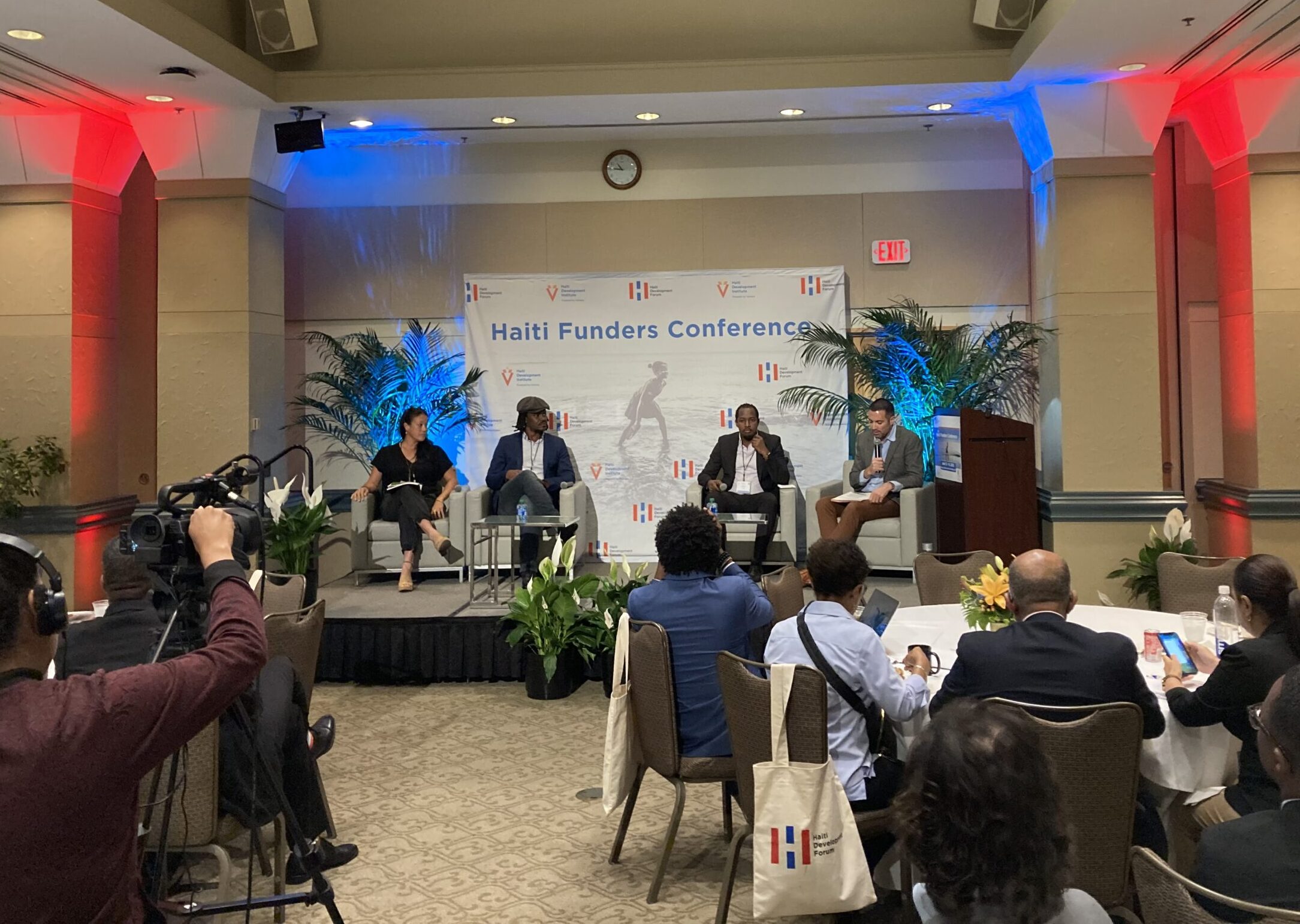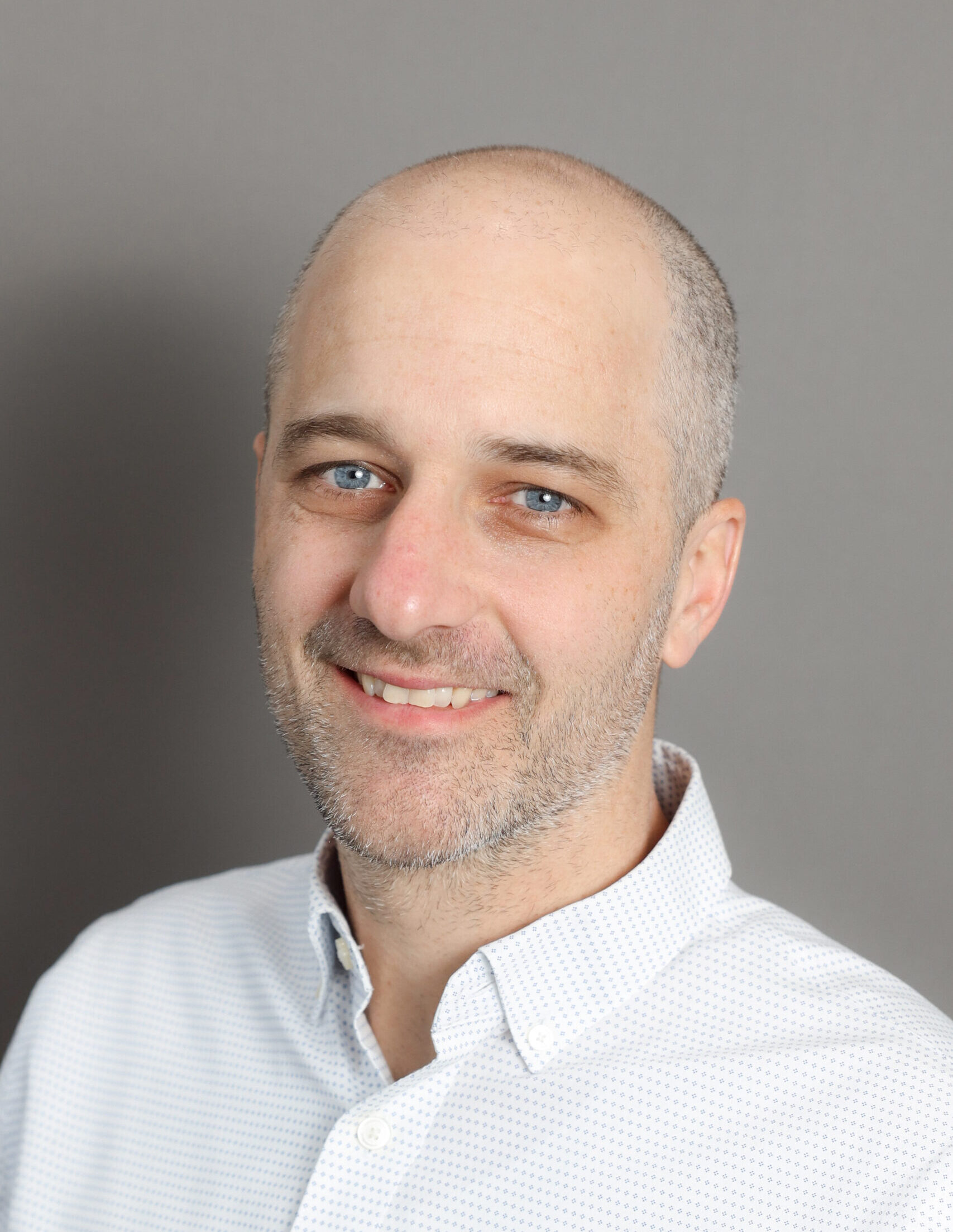Better preparedness, better response: Reflections from the 5th Haiti Funders Conference

As I reflected on attending the 5th Haiti Funders Conference this month, I recalled a Kreyòl proverb that summarizes one of my takeaways from the conference: piti piti, zwazo fè nich. Translated into English, this proverb says: little by little, the bird builds its nest. The meaning is around the importance of small steps that are needed to accomplish big goals.
The conference, co-organized by FOKAL, Ayiti Demen and CDP grantee partner Haiti Development Institute, occurred at a critical time for the country. High levels of acute food insecurity and malnutrition, famine-like conditions in parts of Cité Soleil, destabilizing political instability, weakened public institutions, gang control and violence, and repeated natural hazards that result in disaster due to pre-existing vulnerabilities all combine to threaten the lives and livelihoods of Haitians.
While it is important to acknowledge the reality of the situation in the country and the suffering of the people, it is critical to remain steadfast in our commitment to Haiti and recognize the impactful work that is happening.
The need for persistence and patience in disaster philanthropy
One speaker said that working in Haiti is not for the faint of heart. It requires persistence and patience. My observation is that philanthropy in the U.S. context has a tendency to value speed, urgency and quick results. This is even more true among disaster and humanitarian practitioners. We have been trained and conditioned to respond.
Of course, there are moments when immediate action is needed to support disaster survivors following a catastrophic event or to provide lifesaving assistance. However, I was reminded at the conference that the slow, patient work of relationship building and listening is critical in the Haitian context to ensure investments are effective and align with the priorities of Haitians. A message that CDP consistently shares with philanthropy is to focus not only on disaster relief but on recovery, risk reduction and resilience. Such disaster and humanitarian work are closely connected to community development work.
Recommendations for funders
In his book Solferino 21: Warfare, Civilians and Humanitarians in the Twenty-First Century, Hugo Slim says, “Humanitarians are almost unanimous in thinking their aid must have some lasting effect that helps people in a sustainable way not just this month but next year too. Professor Thea Hilhorst has described this trend as a shift from ‘classical humanitarianism’ to ‘resilience humanitarianism’, which sees humanitarians working to achieve long-term development objectives as well as life-saving ones.”
At the Haiti Funders Conference, my colleague Alex Gray moderated a panel discussion entitled “Disaster Mitigation and Response: Better Preparedness, Better Response” to explore these themes. The panel included Etzer Emile, economist and CEO at Haiti Efficace; Jessica Hsu, an independent cultural anthropologist, researcher and solidarity activist; and Louino Robillard, Program Director at Rasin Developman.
Here are four recommendations the panelists gave to funders.
- Fund local organizations. Sabina C. Robillard and Jessica Hsu recently authored a paper entitled Localization: Views From Haiti as one of four studies from the Feinstein International Center on localization. I cannot recommend this paper enough. In the panel discussion, Hsu said to applause in the room, “Humanitarian aid is not going to fix Haiti. Haitians are going to fix Haiti.” Focusing investments on local organizations is important because it places resources in the hands of the Haitian people with the capacity and vision to strengthen resilience in their communities.
- Be flexible. Emile told the audience that some donors demonstrate flexibility by listening to what the focus of interventions should be and acting on that, but more should follow these steps. Robillard’s advice to funders also included a message to be flexible and willing to change the plan as necessary. The panelists referred to Haiti as one of the most complex crises, and in such contexts, pre-determined project plans and timelines are often unrealistic. Flexibility from funders allows partners to adapt to the current reality.
- Build relationships. Hsu said more investment in local organizations is needed, but funders also need relationships. Building relationships before a disaster event is a form of preparedness, and in times of crisis, the social capital that has been nurtured will help support equitable recovery. However, relationships require time and intentionality.
- Make sustained investments. Haitians are fleeing the country, often embarking on dangerous journeys in search of safety, protection and opportunity. Inside the country, a long pattern of people arriving in overcrowded urban areas from the countryside persists. Funders should invest in local development to ensure people can remain in their communities and thrive. Community-focused and locally-led solutions are needed. Emile encouraged funders to focus on strengthening economic capacity so the humanitarian situation is not permanent.
The conference attendees were primarily community development actors who have been working in Haiti for years, if not decades, in areas including agriculture, livelihoods, food security, gender justice, health and education. Given this audience, it was powerful for the panel to describe how the principles and areas of focus of community development are aligned with building resilience and preparing for and preventing disasters and crises. Disaster and humanitarian funders can learn from the patience and longer time horizons that development actors typically operate within.
A call to philanthropy
The humanitarian crisis in Haiti is deeply troubling on a human level and is having catastrophic impacts on Haitian families, communities and the fabric of society. There are significant challenges, and while a permanent political solution is needed that humanitarians and funders are not responsible for, it is their responsibility to fund locally, be flexible, build relationships and make sustained investments.
The call to philanthropy is to remain committed to Haiti for the long haul and follow the lead of Haitians to ensure more effective disaster mitigation, better preparedness and better response. Share on X
Piti piti, zwazo fè nich.
